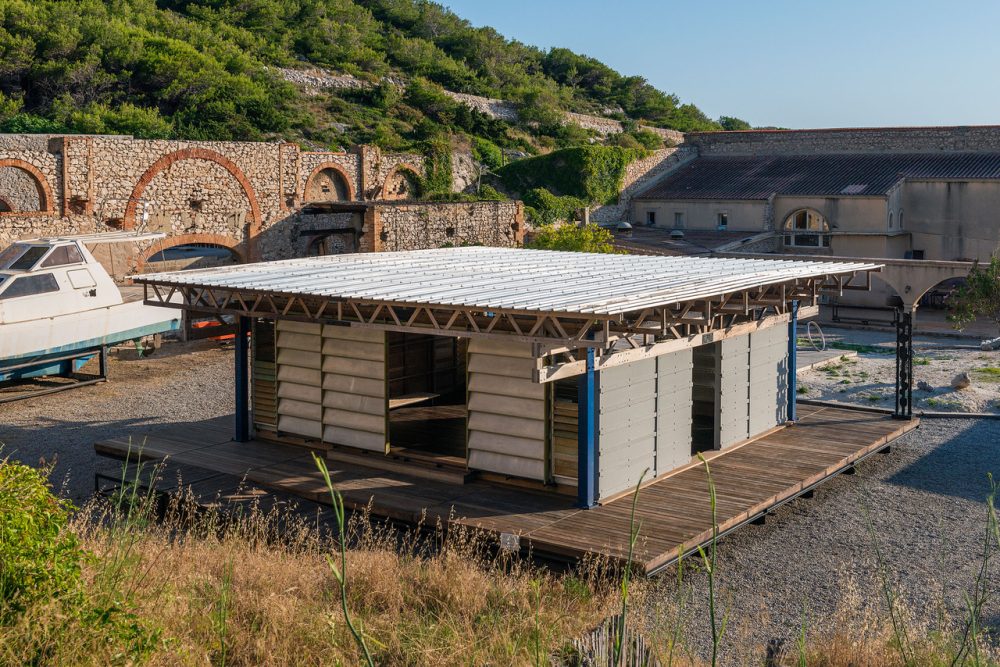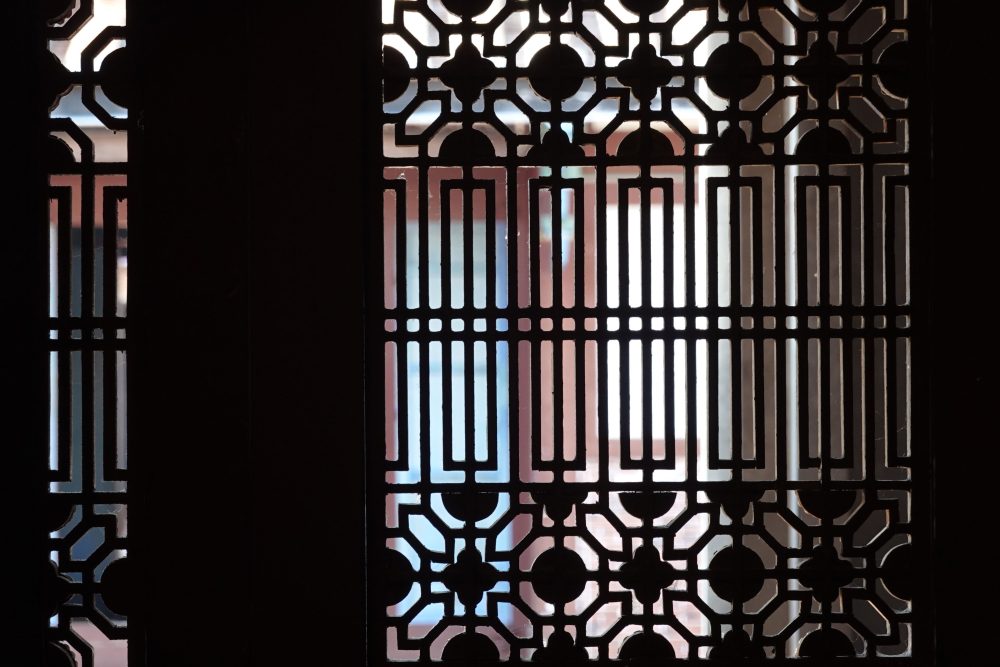
Series Window Terminology à la Carte
Vol. 4: Windows in Italian
11 Sep 2018
Linguist Yasunari Ueda looks into the origins of words that mean “window” from around the world to explore the process through which the concepts of the word have expanded over the ages. In Volume 4, he examines the word “finestra” used in Italy, a country which was historically the heart of the Roman Empire and which continues today to produce its own unique culture.
1. Introduction
The Italian word “finestra” [“window”] originated from the Latin word “fenestra”. This Latin word formed in connection with the Greek word “phàino” [“to be made visible, to give light”]. In other words, etymologically speaking, the original meaning of the word “finestra” was “a hole in a wall (for admitting light and air)”.
As in the earlier entries, I will look at compound words, idioms, and proverbs that contain the word “finestra”. Such linguistic expressions should give a sense of the history, culture, geography, and climate of Italy. I will focus this piece on words and expressions that feel especially Italian.
2. Compounds Containing the Word “Finestra”
Italian compounds that contain the word “finestra” are composed of the word in noun form and another adjectival word. There are both cases in which the noun “finestra” is followed by an adjective and preceded by an adjective. In either case, the other word takes one of two forms: It either contains a preposition, such as “con” or “a” [“with”], “di” [“of”], or “sopra” [“on” or “over”], that leads another noun, or it serves as an adjective that adds description to the word “finestra”.
2.1. “Finestra + Y“-Type Compounds
Examples of compound words that contain a preposition preceding a noun include “finestra a bifora” [“mullioned window”], “finestra con doppio telaio” [“window with two frames”], “finestra di opportunità” [“window of opportunity”], and “finestra sopra tetto” [“window above the roof”]. Examples in which the adjective comes at the end include “finestra finta” [“faux window”] and “finestra panoramica” [“panoramic window”]. In many cases, the elements that follow the word “finestra” explain the form or position of the window. In almost every case, the word “finestra” itself is used to describe actual architectural windows. However, there are also compounds like “finestra di opportunità”, which draws its meaning from a particular function of a window and is used idiomatically to express how one has a “view” of an opportunity.
2.2. “X + Finestra”-Type Compounds
Compounds of this type include “busta a finestra” [“envelope window”]. In this case, the word “finestra” is used figuratively, and the opening in the envelope is likened to a window in an architectural sense. The compound “donna da finestra” [“window woman”] is used with the meaning “flirtatious woman”. In this case, the act of standing by the window is seen to signify the notion of putting on outward decoration. The meaning of this idiomatic expression is hinged on the window’s role as a point of contact with the outside world.
3. Idiomatic Expressions Containing the Word “Finestra”
I will now introduce some expressions that I found by examining several Italian dictionaries.
The expression “mangiare la minestra o passare, saltare dalla finestra” [“eat the soup or go jump out the window”] is used with the meaning “a choice between two things”. Perhaps a more well-known word related to “minestra” is “minestrone”. While the former is used to describe a simple vegetable soup, the latter refers to a slightly more fancy soup that also contains meat. For many Italians who would not be satisfied by a meal without meat, “minestra” seems to imply somewhat of a plain soup. However, it is still better to drink the soup than to jump out from the window, for one cannot predict what dangers might await beyond the sturdy masonry walls that divide the interior and exterior of one’s house.
The expression “stare alla finestra” [“stand at the window”] is used to describe a person looking blankly out of a window, and it means “to spend time idly”. The expression “mettere alla finestra” [“place at the window”] is used with the meaning “to show off”. It is based on the view that when people set things by windows, which are interfaces with the outside world, they do so to actively display their possessions to the outside. Neither of these actions is considered in a positive way.
The expression “passare per la finestra” [“pass through the window”] means “to acquire in an improper way”. It seems to be based on a similar logic to that underlying the Japanese expression “裏口入学” [uraguchi nyūgaku, “backdoor admission”]. Windows, like the backdoors and service doors of houses in Japan, are not intended to be used as proper entrances. Thus, in this expression, the act of entering through the window is taken to symbolize an improper act.
4. Proverbs Containing the Word “Finestra”
I will now introduce several sayings that feel particularly Italian from the dictionary of proverbs that lists the most entries with the word “finestra” (Guazzotti/Oddera 2006).
There are also proverbs that describe the idea of “standing at the window” as an act of vanity. The saying “la donna alla finestra, la gatta alla minestra” [lit. “the woman at the window, the cat at the soup”] is explained as meaning “a woman who tries hard to be complimented does not eat her meals at home”. Another saying similar to this is “la roba fa stare il tignoso alla finestra” [lit. “wealth puts the miser by the window”], in which the act of standing at the window is seen to reflect human psychology. It is used to express how our behaviors and actions often reflect our inferiority complexes. Another proverb that involves windows and women is “le donne son sante in chiesa, angele in istrada, diavole in casa, civette alla finestra e gazze alla porta” [lit. “women are saints in church, angels in the street, devils in the house, owls at the window, and magpies at the door”]. While people in Japan tend to have the impression that “three women together means noise”, as expressed by the saying “女三人寄れば姦しい” [onna sannin yoreba kashimashii], the Italian saying instead emphasizes how women have the ability to adapt and behave differently depending on their settings.
The following three proverbs are based on the understanding that windows are not proper entranceways and give meaning to the act of passing through them.
The saying “Dio serra un uscio e apre una finestra” [lit. “God closes a door and opens a window”] seems particularly Italian in the sense that Italy is home to the Vatican. It is explained as meaning “God will help you in unexpected ways even at times when it seems all hope is lost”. The saying “il grasso non vien dalle finestre” [lit. “fat does not come from the windows”] is used with the same meaning as the Japanese saying “霞を食って生きているのではない” [kasumi wo kutte ikite iru no dewa nai, “one does not live by eating mist”], or, in other words, “one must obtain at least the bare minimum to survive”. Like the Japanese saying “棚からぼた餅” [tana kara botamochi, “rice cakes from the shelf”], it seems to be a warning that food will not just happen to appear at the window. It could perhaps also be a reference to the biblical teaching to work “with sweat on your brow”. The saying “quando la fame vien dentro la porta, l’amore se ne va dalla finestra” [lit. “when hunger comes in at the door, love goes out the window”] seems to be synonymous with the Japanese sayings “困窮が訪れると、正直は窓から逃げていく” [konkyū ga otozureruto, shōjiki wa mado kara nigeteiku, lit. “when difficulty arrives, honesty goes out the window”] and “金の切れ目が縁の切れ目” [kane no kireme ga en no kireme, lit. “relationships end where the money ends”]. According to the dictionary, it is not actually a teaching about relationships in general, but rather a teaching that one must avoid marrying someone poor. The saying is likely to have originated back in the day when starvation was a common fear and dowry was extremely important. The saying “dove son donne innamorate morte, è inutile serrar finestre e porte” [lit. “when a woman is so in love that she could die, it is useless to shut the windows and doors”] (Guazotti/Oddera 2006, 232) describes the power of true love and can be interpreted as a teaching that earnest love can best any obstacle (i.e. “love is blind”). However, perhaps this is something that only a romantic person who does not know reality would say.
There are also proverbs that reflect the Italian climate. For instance, the saying “quando viene, serragli le finestre in contro; quando parte, apriglile” [lit. “when the sun comes out, close the windows to block the light; when the sun leaves, open the windows”] advises people to close their windows to avoid direct sunlight when the glare is strong.
5. Conclusion
In this piece, I examined Italian compounds, idioms, and proverbs that contain the word “finestra”. Such expressions are naturally rooted in the culture and climate of Italy. However, there are also some expressions that refer idiomatically to certain functions of windows, such as those that view the act of entering through windows as improper. The same idea is expressed in Japanese with expressions such as “裏口入学” [uraguchi nyūgaku, “backdoor admission”]. This is interesting in that it tells us about the universality of the human psychology and shows that there are commonalities in the meanings of expressions that have taken shape in distinct languages. In the next entry, I will delve deeper into this by comparing different languages.
References
Dardano, Maurizio. 1986. Nuovissimo Dardano: Dizionario della lingua italiana. Roma:
Armando Curcio.
Dardano, Maurizio. 2005. Nuovo manualetto di linguistica itliana. Bologna: Zanichelli.
De Mauro, Tullio. 1999. Grande dizionario italiano dell'uso. Torino: UTET.
Guazzotti, Paola and Maria Federica Oddera. 2006. Il grande dizionario dei proverbi italiani.
Bologna: Zanichelli.
Mestica, Enrico. 1942. Dizionario della lingua italiana. Torino: Libraria Italiana.
Palazzi, Fernando. 1939. Novissimo dizionario della lingua italiana. Milano: Ceschina.
Pittàno, Giuseppe. 1992. Dizionario dei modi di dire, proverbi e locuzioni. Bologna: Zanichelli.
Quartu, Bruna M. 2001. Dizionario dei modi di dire della lingua italiana. Milano: Rizzoli.
Sabatini, Francesco and Vittorio Coletti. 1997. Dizionario Italiano. Firenze: Giunti.
Sandron. 1987. Dizionario Sandron della lingua italiana. Firenze: Remo Sandron.
Serianni, Luca. 1998. Grande dizionario della lingua italiana moderna. Torino: Garzanti.
Zingarelli, Nicola, Miro Dogliotti, and Luigi Rosiello. 1995. Vocabolario della lingua italiana,
Dodicesima edizione. Bologna: Zanichelli.
Yasunari Ueda
Born 1948 on the island of Tokunoshima in the Oshima District of Kagoshima, Japan. Graduated from the Department of Philosophy in the Faculty of Letters of Kobe University and received a master’s degree from the Hiroshima University Graduate School of Letters. Taught as a teaching assistant and lecturer at the Faculty of Humanities of Chiba University, an assistant professor at the College of General Education of Kyushu University, and an assistant professor at the School of Letters of Hiroshima University before becoming a professor at the Graduate School of Letters of Hiroshima University in 2001 (retired in 2013). Doctor of Letters. Specialist of modern German studies. Known particularly for his research on Japanese and German idioms, the linguistic theories of Karl Bühler (1879–1963), German sociolinguistics, and applied linguistics (foreign language education). Currently working on making proposals for vocabulary learning based on the findings of his comparative research on Japanese and German idioms.

MORE FROM THE SERIES
-

Window Terminology à la Carte
Windows in the Tokunoshima, Amami Region: Boma Shimaguchi Dialect
26 Sep 2022

Window Terminology à la Carte
Vol. 6 : Window Culture Studies—Towards Further Linguistic Explorations
18 Dec 2018

Window Terminology à la Carte
Vol. 5: A Contrastive Linguistic Analysis of Words for “Window”—Based on Comparative Analyses of Japanese, German, English, and Italian Idioms
27 Nov 2018

Window Terminology à la Carte
Vol. 3: Windows in English
30 Aug 2018







